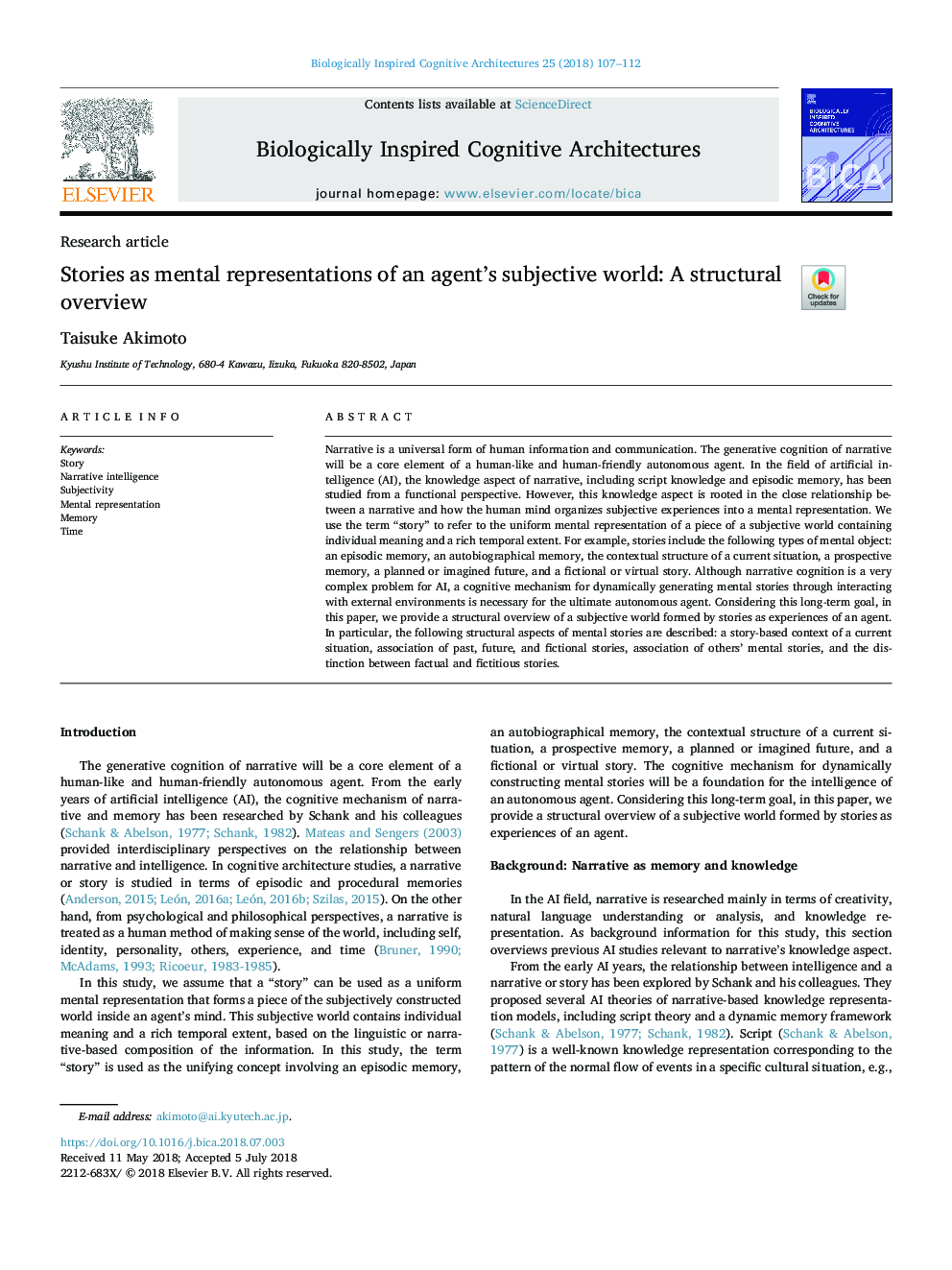| Article ID | Journal | Published Year | Pages | File Type |
|---|---|---|---|---|
| 10150935 | Biologically Inspired Cognitive Architectures | 2018 | 6 Pages |
Abstract
Narrative is a universal form of human information and communication. The generative cognition of narrative will be a core element of a human-like and human-friendly autonomous agent. In the field of artificial intelligence (AI), the knowledge aspect of narrative, including script knowledge and episodic memory, has been studied from a functional perspective. However, this knowledge aspect is rooted in the close relationship between a narrative and how the human mind organizes subjective experiences into a mental representation. We use the term “story” to refer to the uniform mental representation of a piece of a subjective world containing individual meaning and a rich temporal extent. For example, stories include the following types of mental object: an episodic memory, an autobiographical memory, the contextual structure of a current situation, a prospective memory, a planned or imagined future, and a fictional or virtual story. Although narrative cognition is a very complex problem for AI, a cognitive mechanism for dynamically generating mental stories through interacting with external environments is necessary for the ultimate autonomous agent. Considering this long-term goal, in this paper, we provide a structural overview of a subjective world formed by stories as experiences of an agent. In particular, the following structural aspects of mental stories are described: a story-based context of a current situation, association of past, future, and fictional stories, association of others' mental stories, and the distinction between factual and fictitious stories.
Related Topics
Physical Sciences and Engineering
Computer Science
Artificial Intelligence
Authors
Taisuke Akimoto,
